Yet Another Moral Alphabet of Vice and Folly
Illustrations and text by Stan Washburn


An Art Dealer’s genius lay in convincing the well-to-do with no taste of their own that the gaudy work he sold for such absurd prices was culturally exciting, and a shrewd investment into the bargain. His buyers’ coteries, also without taste but eager to be in fashion, hastened to the gallery to brandish their checkbooks and bask in the dealer’s flatteries. And so he prospered.
Moral: The innocent venture downtown at their peril.
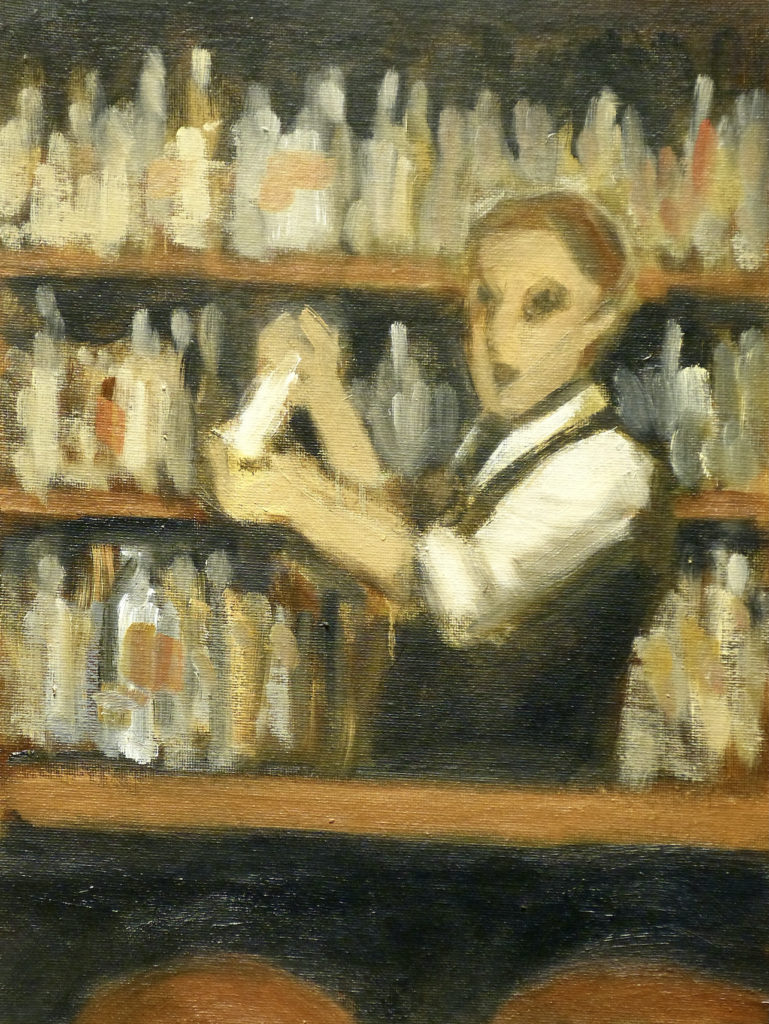
A Barista was unsettled by the seemingly feminine gender of his job title. He took to referring himself as a baristo, but was so much laughed at that he took to liquor, and became a bartender instead.
Moral: Always play to your strong suit.

A Cashier had started out in the old days when people paid cash for purchases. He’d loved handling the bills and coins large and small, shuffling them in and out all day long. But now no one used cash. They inserted cards to pay, and when they went for self-checkout he had nothing to do at all. Until one day a lady his age timidly offered actual money. His delight charmed her, and she him. They were soon wed, and hurried away together into happy retirement.
Moral: Some people just luck out.

A Doomsayer was so full of gloomy pronouncements that his friends got bored with it and told him to talk about something cheerful for heaven’s sake. Startled, he said something appreciative of butterflies—which set his head off in a whole new direction, and abruptly, wonderfully, he began to notice life’s many beauties.
Moral: Always notice the butterflies.
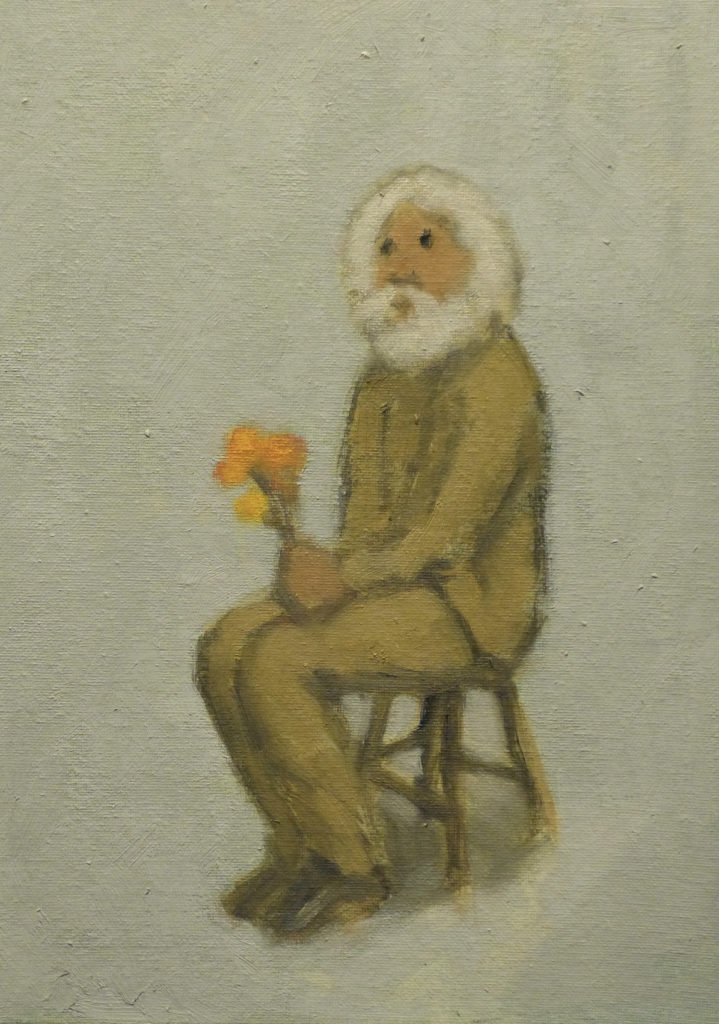
An Eccentric began to wonder where his various oddities came from. He consulted a psychiatrist who told him he was clearly batty and put him down for two sessions a week. But the shrink’s fees were so outrageous that the eccentric decided that being a little odd beats getting robbed, and cancelled the whole business.
Moral: It’s good to keep one’s sense of proportion.

A Fraudster created a website to send out emails soliciting contributions to non-existent charities. The kind-hearted would respond; the money disappeared, of course. But the fraudster, while crafty at fraud, was no tekkie, and a bored police clerk took three minutes to trace his site back to his home address. Officers met him at the door and hauled him away.
Moral: Always hire a tekkie.
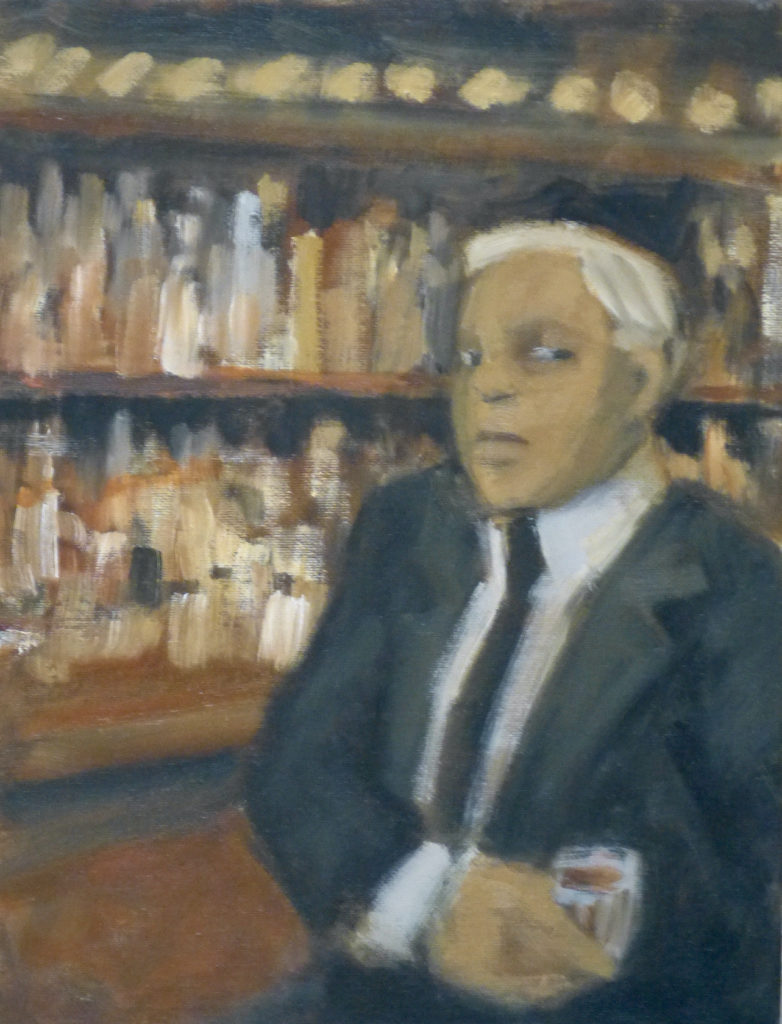
A Gangster was approaching his favorite bar as two robbers burst out, their hands full of money. He whipped out his pistol and shot them both dead. Then he gathered up the money and took it back into the bar. Scratching his head, the bartender asked how a gangster could object to robbers. “Because this is my favorite bar,” replied the gangster, a little puzzled by the question.
Moral: We all make exceptions.

A Heroine rescued a group of children trapped in a burning schoolhouse. Great acclimation followed, with multitudinous expressions of thanks and adoration. This was very gratifying for a while, but the heroine, quiet and inward by nature, began to feel oppressed by it. At length she quit her job and fled far enough that she could be unknown and start again.
Moral: Sometimes a pat on the back is plenty.
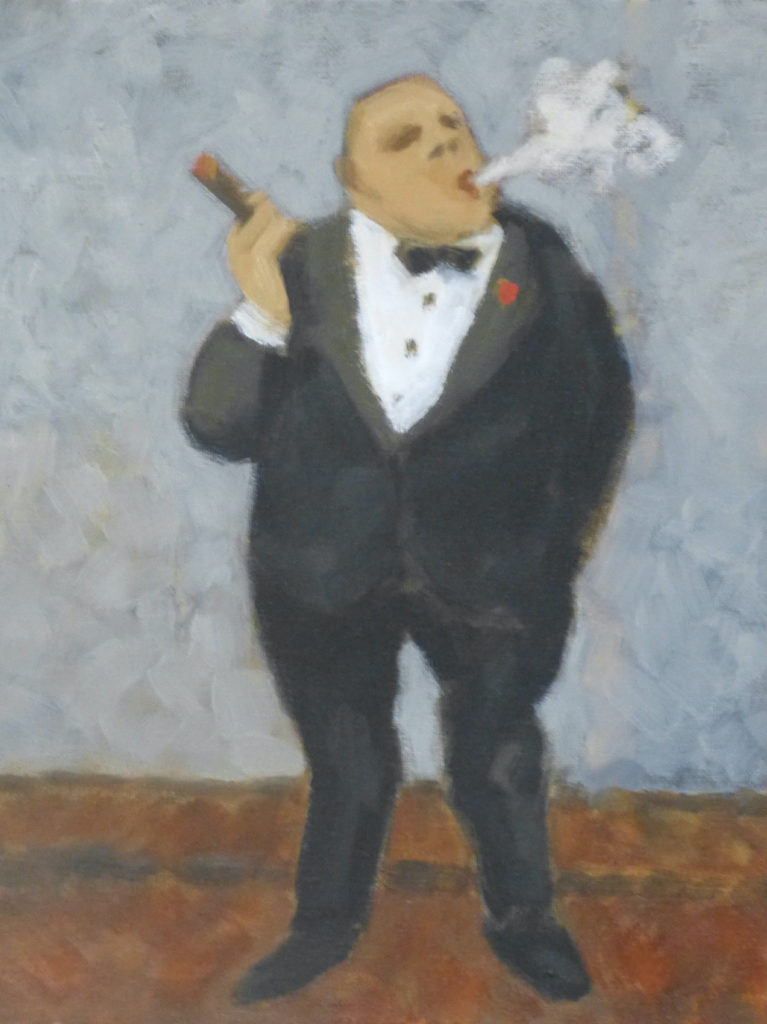
An Ignoramus lucked out on the lottery, and was suddenly very wealthy. Everyone who knew him flocked around, eager to inveigle him into bankrolling this or that cunning venture that would surely lead to riches. But the ignoramus, seeing no point in these schemes, sent them away. He was up to the eyeballs in money already—didn’t they get that?
Moral: Those around you will have their own trains of thought.

A Jailer started up suddenly in bed. He’d dreamt that he was laid off because there were no prisoners in his jail. But now awake he thought of all the cops busily hauling the perps in, and the judges busily ruling to keep them there, and lawyers bustling on all sides. A whole lively industry, in other words, surrounded him. No reason to worry: there would always be prisoners. Relieved, he sank back in bed, and was soon asleep.
Moral: Even silly nightmares can be scary.
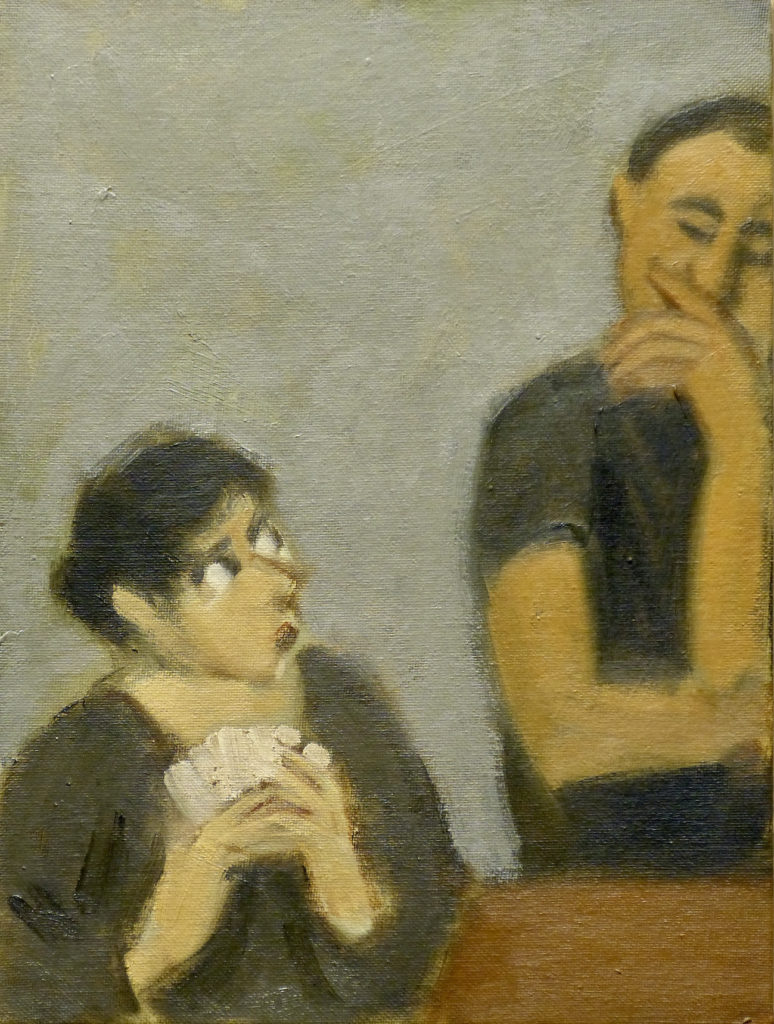
A Kibitzer, watching a poker game, made the mistake of bursting into laughter over a player’s hand. She threw down her cards, jumped up and punched him on the nose. The whole table sprang up, clapping and whooping. Stepping over the kibitzer writhing on the floor they hustled the lady off to the bar, where she was admired by all, and drinks were on the house.
Moral: Some community expressions are livelier than others.
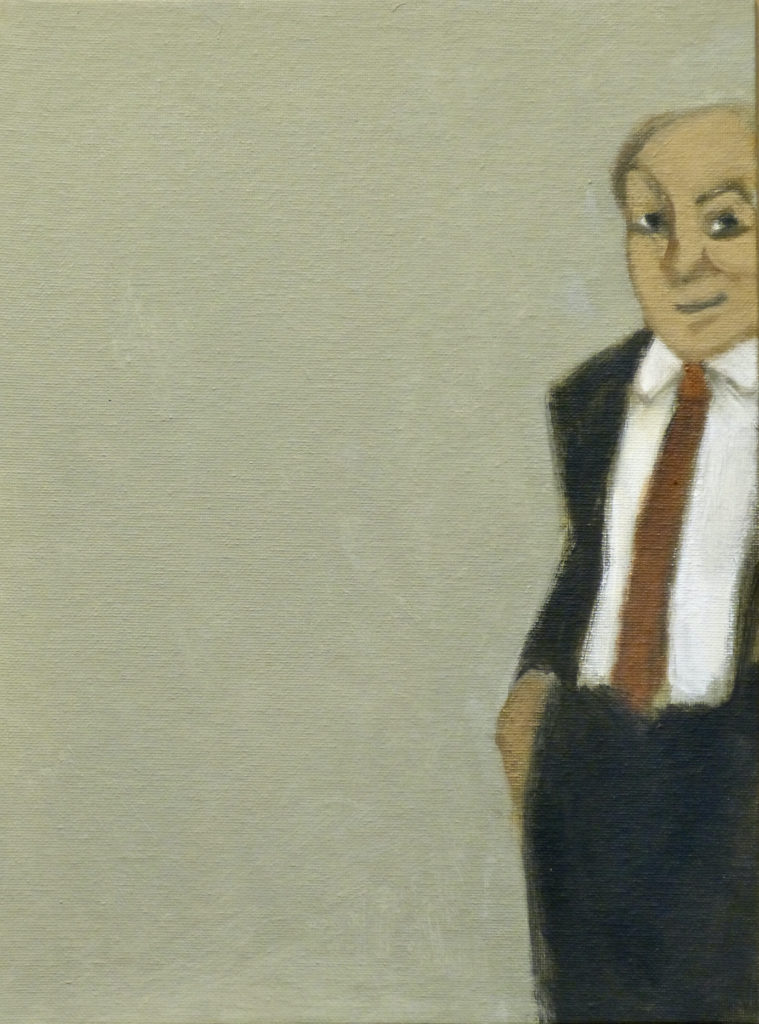
A Lickspittle was so adroit at truckling, fawning, and toadying that the powerful loved having him around, and regularly promoted him until he found himself as powerful as they were. Whereupon he pushed them out and took over. Soon he was himself surrounded with lickspittles. He loved having them around, and regularly promoted them, not noticing that they were becoming as powerful as he was. It could not end happily.
Moral: Pay attention to patterns.

A Mailman–a small, eager fellow–was fascinated by the high-toned journals that passed through his hands–so much so that he would often take one home to read that night, and deliver the following day. Or in some knotty cases, in two or three days. This discommoded the high-toned professor on his route, who nevertheless couldn’t bring himself to complain about it. He would see the little mailman trotting up to his house, and fold his hands in resignation.
Moral: Some inconveniences should be kindly borne.

A Neanderthal, sensitive to the intellectual deficiencies of his community, proposed a university–Neanderthal U–to set the future on a brighter path. But others in his cave pointed out that if in fact everyone was as dim as they seemed to be, there really wasn’t much point in a university, was there? Besides, the day was so absorbed in the unrelenting struggle to fend off starvation that nobody would have much time for studies, would they? And so the proposal died.
Moral: Visionaries don’t always put their finger on it.

An Octogenarian suffered many of the afflictions common to the elderly, but refused to be downcast on that account. The comforting thing about old age, she smiled, is that you know it’s not a permanent condition.
Moral: Sometimes it’s peaceful to be realistic.
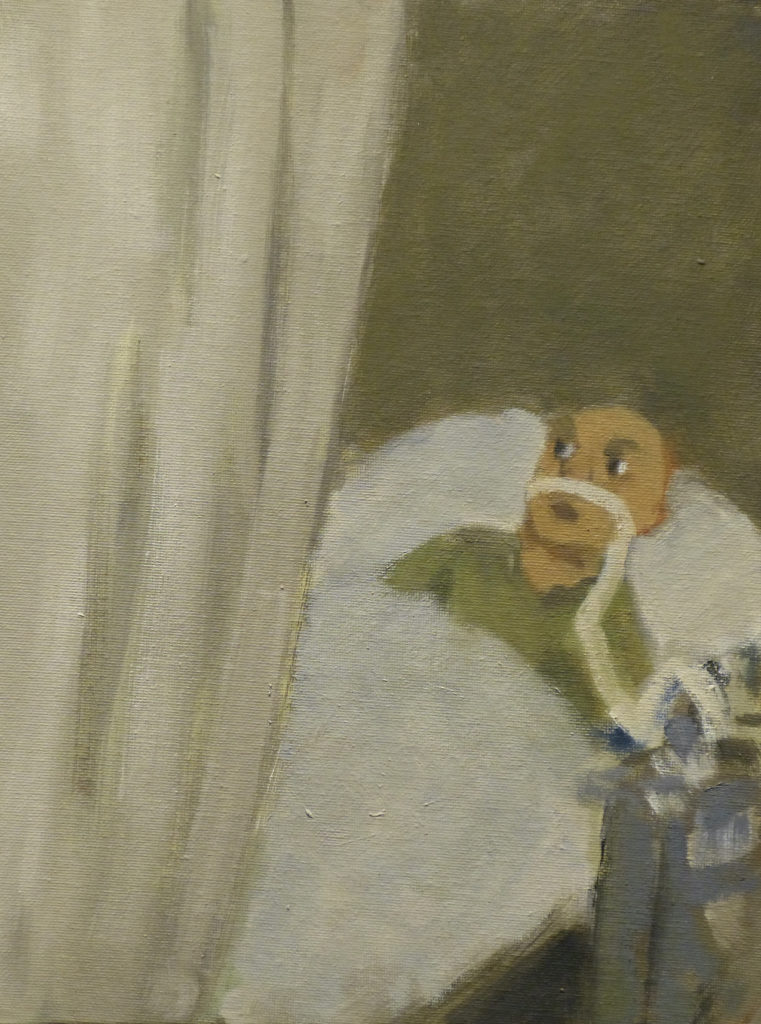
A Patient, having rejected all sensible medical advice, came to his deathbed a good deal sooner than necessary. “But at least,” he wheezed, “I never let them boss me around.” His nurse tiptoed out to the corridor to laugh. She repeated what he’d said to other nurses. They split their sides in mirth. Soon the whole hospital was rocking as the fellow breathed his last.
Moral: Even those who can’t inspire can still amuse.
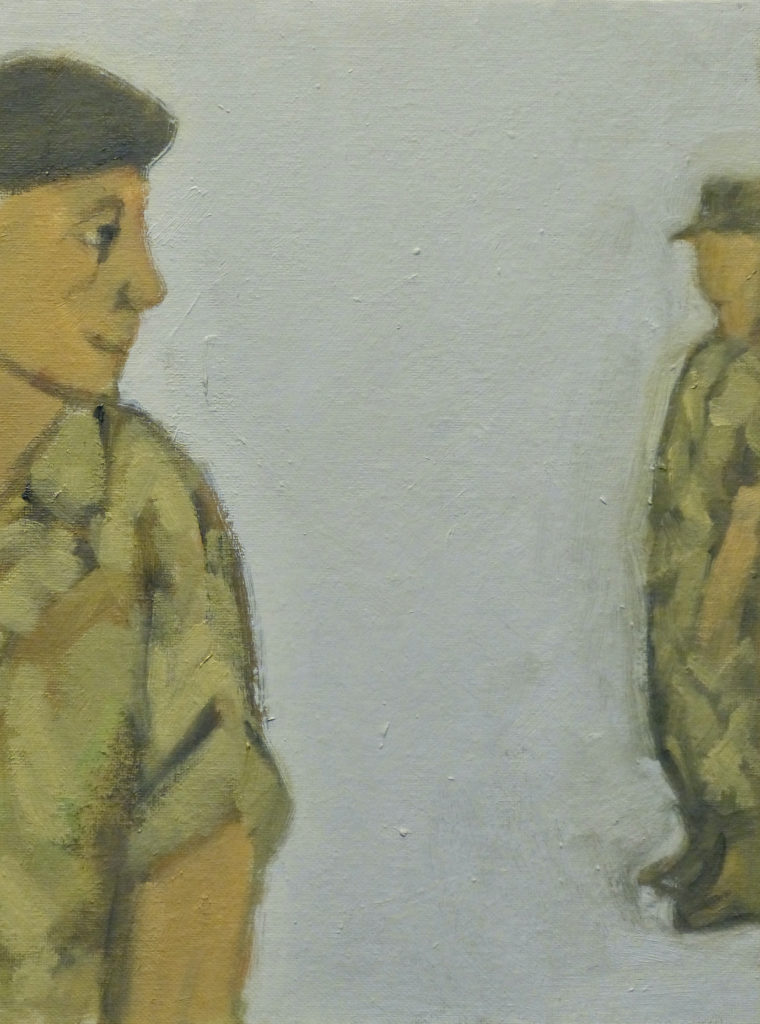
A Quartermaster, bored with running his base just like every other, turned to unorthodox choices just for the hell of it. He bunked the sexes together, for starters, and promoted exotic menus in the canteen. Everyone loved it. The high command would reverse it all as soon as they found out what was going on, but in the meantime troops who encountered the quartermaster around the place wished they could rush over and give him happy hugs and enormous kisses. It happened twenty times a day, and set everyone to smiling.
Moral: You may think you understand the military.
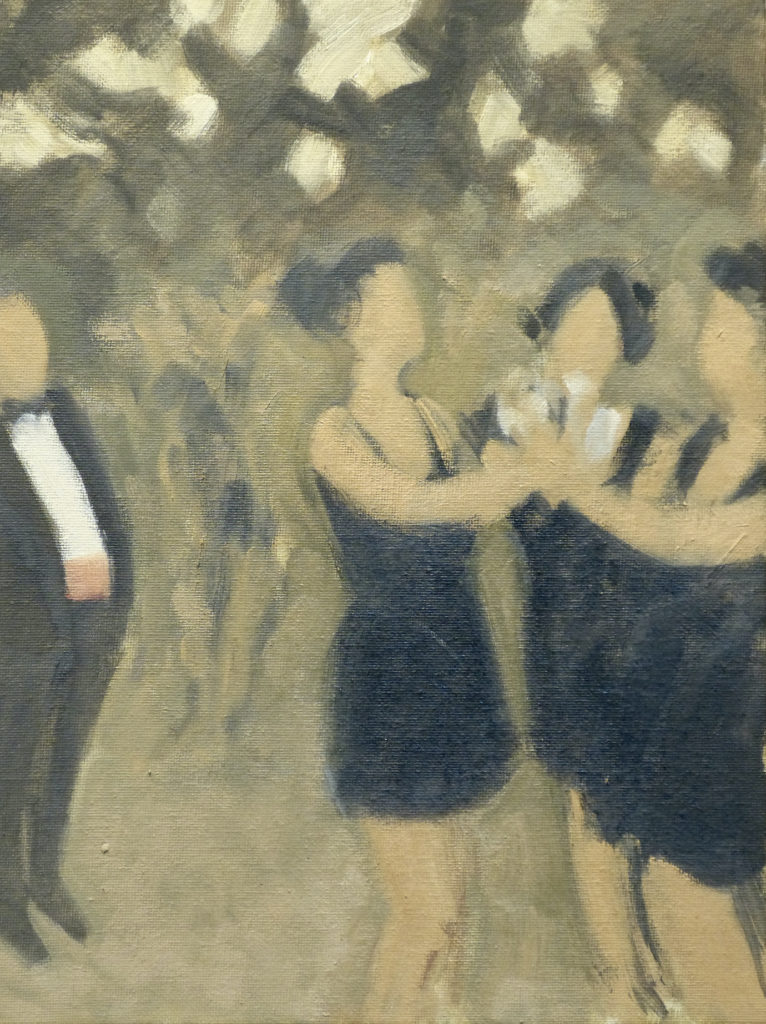
A Rake, turning gray and a little pot-bellied, found himself less and less successful in his efforts to seduce women. He was still witty, still knew how to lay a spicy compliment, could still afford glamorous restaurants and expensive champaign. But there was no getting around the fact that he was turning gray and a little pot-bellied.
Moral: Don’t wait.
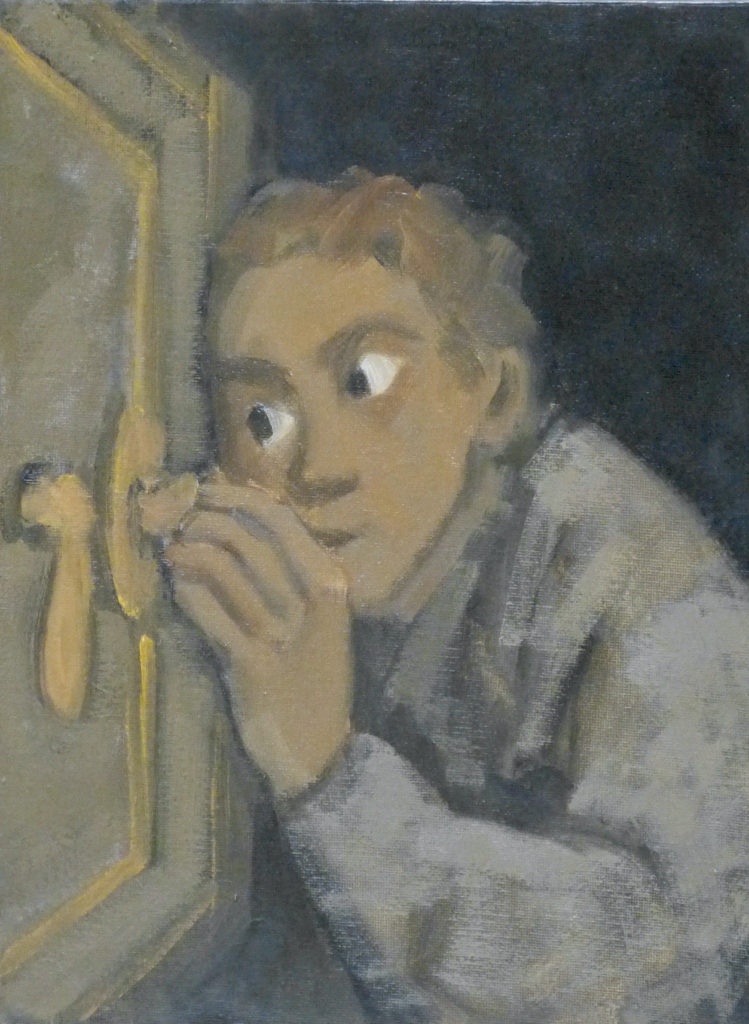
A Safecracker grew discontented with the undignified nature of his work, and resolved to find some more elevated mode of life. He enrolled in college, majoring in philosophy. But he found upon graduation that he couldn’t make philosophy pay, and soon he was back to safecracking simply to cover his bills.
Moral: The world is as it is.
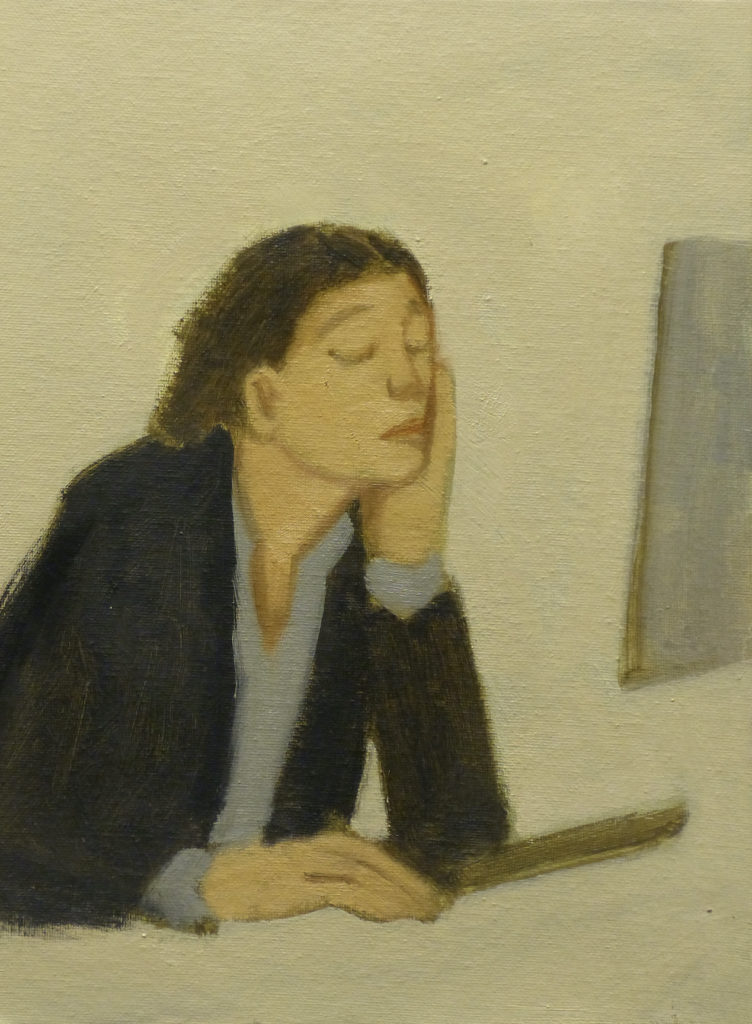
A Tekkie got so bored with her tasks that one day she fell asleep in front of her screen. This was viewed on the network by numerous colleagues. The unexpected sight oddly soothed them, and they began to drift off in their turn. Untouched, their computers began to go dark, one by one.
Moral: Sometimes pleasant things just happen.

An Unbeliever would have found belief comforting if only she thought it made sense. Her religious friends pointed out that belief involves a leap of faith rather than a chain of reason. The unreason of faith made sense to the unbeliever, but only confirmed her original difficulty, and she was left just where she had been before.
Moral: Religion is no simple matter.

A Valkyrie grew oppressed by her duty to decide who would be victorious in battle, and who would be slain. “Who am I to make such decisions?” she asked herself. She took to tossing a coin: heads they live, tails they die. But the other valkyries noticed what she was doing, and made such a fuss about it that she had to go back to making individual calls.
Moral: It’s smoothest to respect convention.
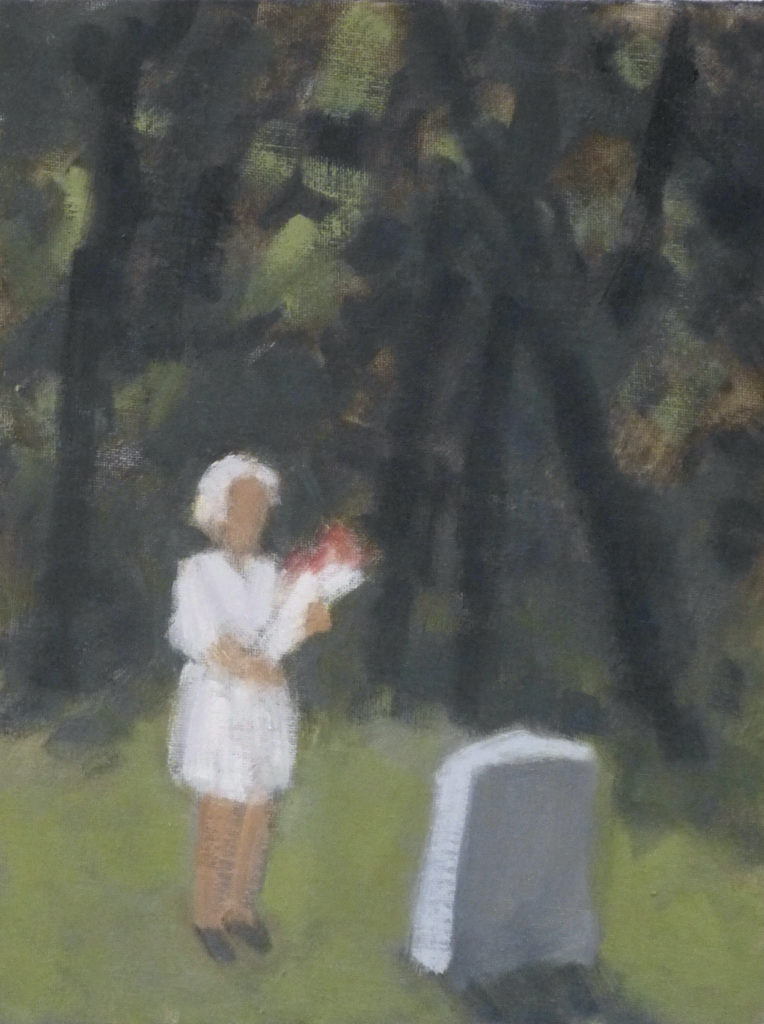
A Widow lamented the death of her husband of many years. Her consolation was that now she could cancel their subscription to the opera. It had been his passion, but had always bored her.
Moral: Just be patient.
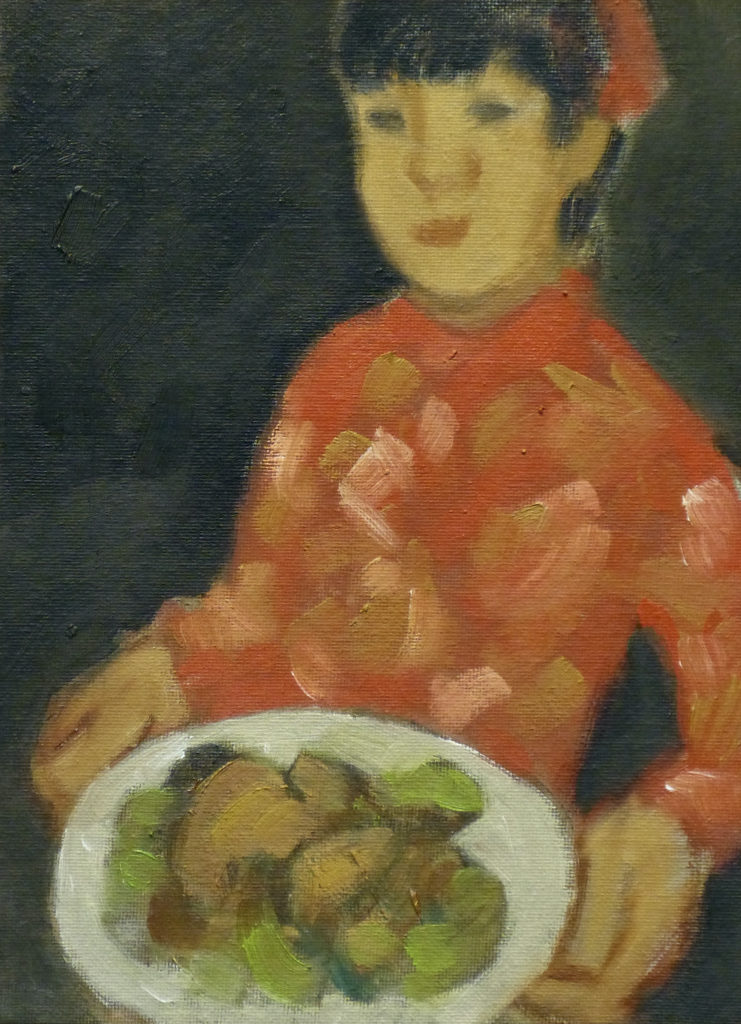
A Xenophobe found Chinatown quite astonishing. Threading his way along the busy streets he shook his head in disbelief at all the people babbling in Chinese. He was going to a little restaurant with an incomprehensible window sign in Chinese characters where nevertheless the cute waitress would bring him the Tea Smoked Duck he loved. And the cute waitress he loved as well, although she seemed to speak no English at all. He came there often.
Moral: We don’t have to let our attitudes get in our way.

A Youth, full of beans, set himself in pursuit of a pretty girl who was herself full of beans in pursuit of her studies–so full, indeed, that she had little attention for the beans of others, however full of them they might be.
Moral: Beans don’t make it on their own.

A Zealot was so ideologically rigid that he was presented with an awkward dilemma: how was he supposed to get laid? A true zealot, he recognized, can’t bed just any old bourgeoise bimbo, and the zealous women he knew were all spoken for. Really, he could see no workable solution.
Moral: Sometimes you just have to relax.
